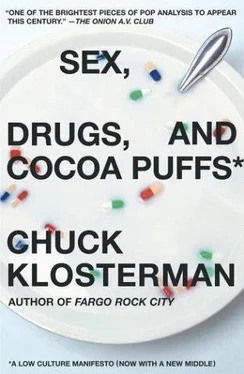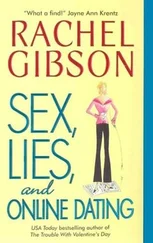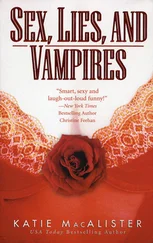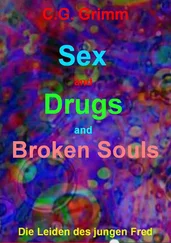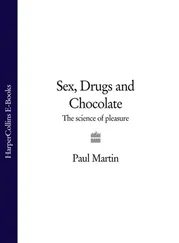I realize citing the first two Godfather films is something of a cheap argument, since those two pictures are the pinnacle of the cinematic art form. But even if we discount Francis Ford Coppola’s entire body of work, it’s impossible to deny that the chances of seeing an über -fantastic film in a conventional movie house are growing maddeningly rare, which wasn’t always the case. It wasn’t long ago that movies like Cool Hand Luke or The Last Picture Show or Nashville would show up everywhere, and everyone would see them collectively, and everybody would have their consciousness shaken at the same time and in the same way. That never happens anymore ( Pulp Fiction was arguably the last instance). This is mostly due to the structure of the Hollywood system; especially in the early 1970s, everybody was consumed with the auteur concept, which gave directors the ability to completely (and autonomously) construct a movie’s vision; for roughly a decade, film was a director’s medium. Today, film is a producer’s medium (the only director with complete control over his product is George Lucas, and he elects to make kids’ movies). Producers want to develop movies they can refer to as “high concept,” which—somewhat ironically—is industry slang for “no concept”: It describes a movie where the human element is secondary to an episodic collection of action sequences. It’s “conceptual” because there is no emphasis on details. Capitalistically, those projects work very well; they can be constructed as “vehicles” for particular celebrities, which is the only thing most audiences care about, anyway. In a weird way, film studios are almost requiring movies to be bad, because they tend to be more efficient.
However, there’s also a second reason we see fewer important adult films in the twenty-first century, and this one is nobody’s fault. Culturally, there’s an important cinematic difference between 1973 and 2003—and it has to do with the purpose movies serve. In the past, film validated social evolution. Look at Jack Nicholson: From 1969 to 1975, Nicholson portrayed an amazing array of characters—this was the stretch where he made Easy Rider, Five Easy Pieces, Carnal Knowledge, The Last Detail, The King of Marvin Gardens, Chinatown, and One Flew Over the Cuckoo’s Nest . It might be the strongest half decade any actor ever had (or at least the strongest five-year jag since the fall of the studio system). And what’s most compelling is that all the people he played during that run were vaguely unified by a singular quality. For a long time, I could never put my finger on what that was. I finally figured it out when I came across a late-eighties profile on Nicholson in The New York Times Magazine : “I like to play people who haven’t existed yet,” Jack said. “A future something.”
Nicholson was particularly adroit at embodying those future somethings, but he was not alone. This was what good movies did during that period—they were visions of a present tense that was just around the corner. When people talk about the seventies as a Golden Era, they tend to talk about cinematic techniques and artistic risks. What they should be discussing is sociology. The filmmaking process is slow and expensive, so movies are always the last idiom to respond to social evolution; the finest films from the seventies were really just the manifestation of how art and life had changed in the sixties. After a generation of being entertained by an illusion of simplicity and the clarity of good vs. evil, a film like Five Easy Pieces offered the kind of psychological complexity people were suddenly relating to in a very personal way. What people like Nicholson were doing was introducing audiences to the new American reality: counterculture as the dominant culture.
Unfortunately, that kind of introduction can’t happen in 2003. It can’t happen because reality is more transient and less concrete. It’s more difficult for a film to define and validate the current of popular culture, because that once linear current has been splintered; it’s become a cracked Volvo windshield, spider-webbing itself in a manner that’s generally predictable but specifically chaotic (in other words, we all sort of know where the national ethos is going, but never exactly how or exactly why or exactly when). Cinematically, this creates a problem. Traditional character models like “The Everyman” and “The Antihero” and “The Wrongly Accused” are no longer useful, because nobody can agree on what those designations are supposed to mean anymore (in Christopher Nolan’s Memento, all three of those labels could simultaneously be applied to the same person). Modern movies can no longer introduce impending realities; they can’t even explain the ones we currently have. Consequently, there’s only one important question a culturally significant film can still ask: What is reality?
I’ll concede that Vanilla Sky poses that question a little too literally at times, inasmuch as I vaguely recall one scene where Tom Cruise is riding in an elevator and someone looks at him and literally asks, “What is reality?” The cryogenics subplot is also a tad silly, since it sometimes seems like an infomercial for Scientology and/or an homage to Arnold Schwarzenegger’s Total Recall . But fuck it—I’m not going to overcompensate and list a bunch of criticisms about a movie I honestly liked, and I did like Vanilla Sky . And what I liked was the way it presented the idea of objectivity vs. perception, which is ultimately what the “What is reality” quandary comes down to. In Vanilla Sky, Cruise plays a dashing magazine publisher. He likes to casually bang Cameron Diaz, but he falls in love with the less attainable Penelope Cruz (it is a credit to Cruz that she makes this situation seem plausible; Penelope is so cute in this film that I found myself siding with Cruise and thinking, “Why the hell would anyone want to have sex with a repulsive hosebag like Cameron Diaz?”). When Diaz figures out that Cruise has been unfaithful, she goes bonkers and tries to kill them both by driving a car off a bridge. She dies, but Cruise escapes—with a horribly disfigured face. Despite his grotesque appearance, he still pursues a satisfying relationship with Cruz and intends to repair his mangled grill through a series of plastic surgeries. Against all odds, his life (and his face) improves. But then it turns out that the diabolical Diaz is still alive…or maybe not…maybe she and Cruz are actually the same person…or maybe neither exists, because this is all a fantasy. Frankly, whatever answer Crowe wanted us to deduce is irrelevant. What matters is that Cruise ultimately has to decide between a fake world that feels real and a real world that feels like torture.
Cruise chooses the latter, although I’m not sure why. Keanu Reeves makes the same choice in The Matrix, electing to live in a realm that is dismal but genuine. Like Vanilla Sky, the plot of The Matrix hinges on the premise that everything we think we’re experiencing is a computer-generated illusion: In a postapocalyptic world, a band of kung fu terrorists wage war against a society of self-actualized machines who derive their power from human batteries, all of whom unknowingly exist in a virtual universe referred to as “the matrix.” The Matrix would suggest that everything you’re feeling and experiencing is just a collective dream the whole world is sharing; nobody is actually living, but nobody’s aware that they aren’t.
For Reeves’s character, Neo, choosing to live in the colorless light of hard reality is an easy decision, mostly because The Matrix makes the distinction between those two options very clear: reality may be a difficult brand of freedom, but unreality is nothing more than comfortable slavery. Cruise’s decision in Vanilla Sky is similar, although less sweeping; his choice has more to do with the “credibility” of his happiness (his fake life would be good, but not satisfying ). Both men prefer unconditional reality. This is possibly due to the fact that both films are really just sci-fi stories, and science fiction tends to be philosophy for stupid people. [54] 1. As opposed to this essay, which tends to be philosophy for shallow people.
Every protagonist in a sci-fi story is ultimately a moral creature who does the right thing, often resulting in his own valiant destruction (think Spock in The Wrath of Khan ). But what’s intriguing about Keanu and Cruise is that I’m not sure I agree that choosing hard reality is the “right thing.” The Matrix and Vanilla Sky both pose that question—which I appreciate—but their conclusions don’t necessarily make logical (or emotional) sense. And that doesn’t mean these are bad movies; it just forces us to see a different reflection than the director may have intended. It probably makes them more intriguing.
Читать дальше
